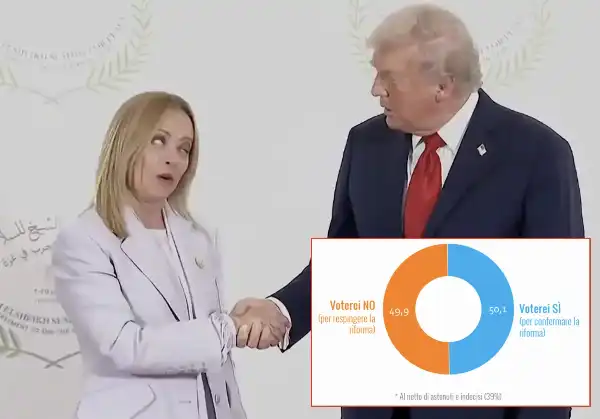“È DIVENTATA QUASI UNA MODA QUELLA DI NON PREOCCUPARSI DELL’EUROPA E DELL’EUROZONA, UN OTTIMISMO CHE HA UN’ECCEZIONE, L’ITALIA”…
1 - L'OTTIMISMO PER L'EUROZONA HA UN'ECCEZIONE, L'ITALIA
Da www.iljournal.it
È diventata quasi una moda quella di non preoccuparsi dell'Europa e dell'eurozona, un ottimismo che non può essere però ampliato all'Italia. È questo il pensiero espresso su Bloomberg da Simon Johnson, ex capo economista del Fondo Monetario Internazionale e attualmente professore presso la Mit Sloan School of Management di Cambridge. Secondo Johnson, infatti, il Vecchio Continente è in fase di guarigione, grazie soprattutto agli sforzi di Germania e Francia.
A suo dire, invece, il nostro paese va esaminato con attenzione e preoccupazione. Siamo la terza economia dell'eurozona, con una popolazione superiore ai sessanta milioni di unità e un prodotto interno lordo di oltre due trilioni di dollari. Il problema è che il Belpaese sta crescendo troppo lentamente rispetto a quanto ha abituato. Come spiegato dal professor Johnson, nel corso degli anni Novanta si viaggiava a un ritmo di crescita pari all'1,2%, mentre il tasso medio dal 2000 a oggi è fermo ad appena lo 0,4%.
Insomma, non si può che parlare di una crescita anemica, ma non a causa degli investimenti e delle infrastrutture. Il principale ostacolo per l'Italia è rappresentato dal suo governo, visto che indicatori come la corruzione o il controllo delle leggi sono stati peggiori perfino rispetto a quelli della Grecia. Se poi si aggiunge che il nostro paese non vanta nemmeno un'attività imprenditoriale degna di questo nome (appena 1,63 nuove società ogni mille lavoratori) si possono capire meglio queste preoccupazioni.
Infine, Johnson si chiede anche in che modo il nostro governo troverà il denaro per ricapitalizzare il settore bancario: se infatti gli istituti di credito non sono in grado di prestare soldi, chi si impegnerà a farlo? Essere in ansia per l'Italia significa a questo punto essere in ansia per l'intera eurozona.
2 - IF YOU THIN EUROPE IS FINE, LOOK AT ITALY
Simon Johnson per Bloomberg.com
It has become fashionable not to worry about Europe and the euro area. This complacency has a serious flaw: Italy.
Optimists argue that Europe is on the mend. The central bank is maintaining stimulus, Germany's export potential remains large, and France will continue to be a haven for investors. Struggling countries such as Greece and Portugal represent less than a 10th of the euro area's economic output and population.
Enter Italy. It is the third-largest economy in the euro area, with a population of more than 60 million and gross domestic product of more than $2 trillion. The government's debt burden, at about 1.3 times GDP, is among the largest in the world. (That's the International Monetary Fund's estimate of gross debt, which is the most reliable series to use for cross-country comparisons; net debt, which includes some government assets, is projected to be 105.8 percent of GDP this year.)
Troubling as Italy's public finances may be, they are not the main reason to be concerned. There is no magic threshold above which government debt will crush the economy, and countries have grown their way out of even larger debt burdens.
The problem is that Italy is growing far too slowly and has been doing so for a long time. During the 1990s, the country's economy expanded at an average annual inflation-adjusted rate of just 1.2 percent, compared with the euro area's 1.8 percent. From there, it only got worse: Italy's average growth rate since 2000 has been 0.4 percent, compared with 1.3 percent for the euro area.
ANEMIC GROWTH
Why such anemic growth? It's not for lack of trying. Italy's investment rate is higher than Germany's. Infrastructure investment is in line with euro-area averages. Human capital, measured as the level of education, has improved steadily. Labor-market and product-market regulation have converged toward Germany's levels. Research and development spending, albeit low relative to European Union averages, has improved in recent years.
The main obstacle to growth in Italy is the government itself. As Daniel Gros, a leading European economist, put it in 2011: "The only factors that have deteriorated absolutely and relative to the core of the Eurozone are indicators of governance -- such as corruption and rule of law." On some measures of governance, Italy does worse than even Greece.
Presumably, Italy's national averages mask important regional differences. If some parts of northern Italy are no different from Germany or Austria in terms of ease of doing business, then the situation in other parts of the country must be really bad. A recent report from the World Bank, for example, found that a municipal building permit takes six months to obtain in Palermo, compared with just one month in Milan.
Italy doesn't rank high in terms of entrepreneurial activity: According to the World Bank, the country has 1.63 newly registered corporations per 1,000 working-age people, far less than the U.K.'s 10.41 but more than Germany's 1.35. The specific difficulty, though, seems to be the conditions that allow -- or don't allow -- small businesses to become large.
There is no definitive understanding of what prevents businesses from getting big, and no shortage of possible explanations. The tax regime, labor regulation and corporate culture are all potential culprits. Perhaps the traditional family-led business model does well on a small scale but can't easily adopt the organizational practices needed to build multinational companies.
DEMOGRAPHIC CHALLENGE
The kinds of so-called structural reforms actually being considered, such as small changes in tax and labor rules, seem unlikely to improve the picture. With the possible exception of the pension system, it is hard to find examples of successful reforms in Italy. And like many European countries, Italy must deal with the demographic challenge of an aging population and a lack of immigrants to renew the labor force. (For a more optimistic view, see this IMF working paper and the agenda articulated by the Organization for Economic Cooperation and Development.)
It is in this broader economic context that Italy's government debt becomes a threat. Even if interest rates stay low for a long time, just keeping the debt burden stable as a percentage of GDP will require impressive spending restraint. At any point, the market could lose faith in Italy's ability to handle its financial challenges.
Consider, for example, the possibility of distress at one or more of Italy's banks, which are among the largest holders and buyers of the government's debt. Where would the government find the money to recapitalize a large bank? If the banks weren't in a position to lend the government money, who would do so?
Or what if Italy's perpetual political demi-crisis escalates? If called upon to handle a crisis, could the Italian government take decisive steps of any kind?
There is plenty to worry about in Italy, and that means there's plenty to worry about in the euro area.
(Simon Johnson, a professor at the MIT Sloan School of Management as well as a senior fellow at the Peterson Institute for International Economics, is co-author of "White House Burning: The Founding Fathers, Our National Debt, and Why It Matters to You.")
 SIMON JOHNSON
SIMON JOHNSON  fondo monetario internazionale
fondo monetario internazionale  Fondo Monetario Internazionale
Fondo Monetario Internazionale  il fondo monetario internazionale
il fondo monetario internazionale  euro
euro  ENRICO LETTA E ANGELA MERKEL
ENRICO LETTA E ANGELA MERKEL OPERAI
OPERAI banche
banche






